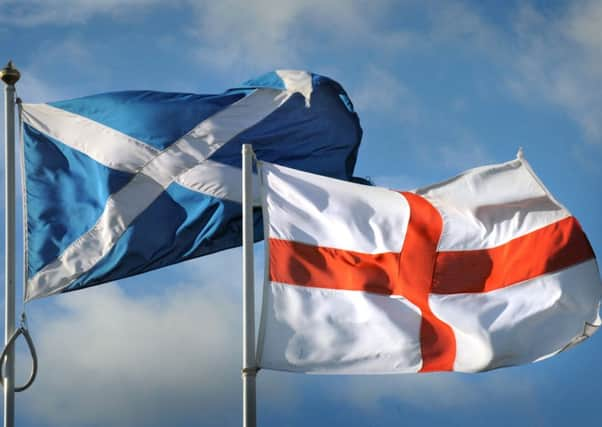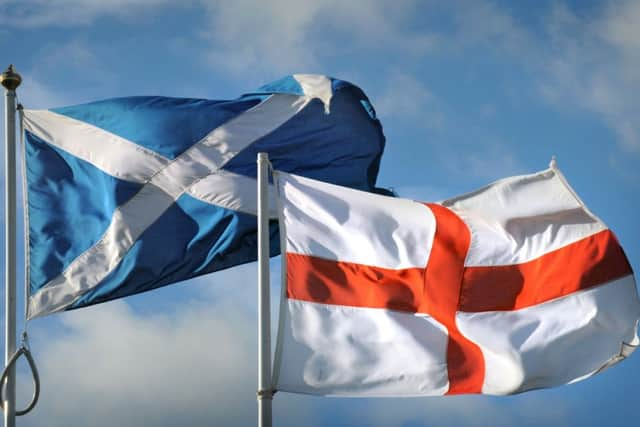Scottish independence: English backlash warning


Alex Salmond’s proposals for a currency union are opposed by two-to-one among English voters, who say the UK should block an independent Scotland joining Nato and the European Union, according to new polling evidence today.
Even after a No vote, people south of the Border say public spending in Scotland should be reduced to bring it into line with the UK average, which the SNP has warned could see £4 billion removed from the Scottish budget.
Advertisement
Hide AdAdvertisement
Hide Ad

“The English appear in no mood to be particularly accommodating however Scots choose to vote in their independence referendum,” said researcher Professor Richard Wyn Jones, of Cardiff University. “There is strong English support for reducing levels of public spending in Scotland to the UK average – a development that would lead to savage cuts in public services north of the Border.
“There is also overwhelming English support for limiting the role of Scottish MPs at Westminster. The question for Scottish voters is whether they can rely on pledges about the consequences of a No vote, when such pledges do not seem to be supported in the largest and most important part of the Union.”
The YouGov poll of 3,695 English adults was carried out in April, but held back until now by the Economic and Social Research Council, which commissioned it.
Only 23 per cent agreed with the proposition that “an independent Scotland should be able to continue to use the pound”, while 53 per cent disagreed. Conservative Party supporters (69 per cent) are most opposed and 64 per cent of Ukip supporters are against sharing the pound. The figure for Labour supporters is 46 per cent and Liberal Democrats 49 per cent.
Even if Scots reject independence, the majority (62 per cent) of people south of the Border believe it is time to get tough. The poll says 56 per cent want public spending in Scotland – about £1,300 higher per head than in the rest of the UK – to be brought in line with the UK average. And 62 per cent want Scotland MPs barred from voting on English-only issues.
But support for greater Holyrood powers is strong in England, with 42 per cent agreeing that the Scottish Parliament should be given control of the majority of taxes raised in Scotland.
A spokesperson for Yes Scotland said: “It is a real concern for a growing number of Scots that Scotland’s budget is in Westminster’s crosshairs and waiting to be slashed in the event of a No vote.”
Advertisement
Hide AdAdvertisement
Hide AdThe pro-union Better Together campaign said English opposition to sharing the pound was to be expected. Labour MSP Jackie Baillie said: “It is not surprising that the majority of people in England do not support a currency union. For us in Scotland, it would mean handing over control of our economy to what would then be a foreign country.”
Professor Charlie Jeffery of the University of Edinburgh, another of the researchers, said: “It is striking how tough people in England are on Scotland whatever the referendum outcome. If anything, the message appears to be: ‘Vote Yes by all means, but if you do, you’re on your own.’
“But if Scots vote No, there’s something similar at play. Here the message is: ‘By all means have more devolution, but you can’t then have the role at Westminster you do now, and don’t expect any funding to flow northwards from England’.”
SEE ALSO